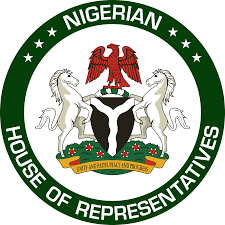The Nigeria Customs Service (NCS) has announced a two-year exemption from import duty and Value Added Tax (VAT) on critical raw materials essential for pharmaceutical production.
Presidential Approval for Tax Relief
The exemption, granted under a presidential executive order, was disclosed on Wednesday in a statement by the NCS National Public Relations Officer, Assistant Comptroller Abdullahi Maiwada.
According to the statement, the relief covers:
Active Pharmaceutical Ingredients (APIs)
Excipients and other essential raw materials for drug manufacturing
Long-Lasting Insecticidal Nets (LLINs)
Rapid Diagnostic Kits
Reagents and packaging materials
Objective: Enhancing Local Manufacturing & Reducing Costs
The measure aligns with government efforts to:
Boost local healthcare manufacturing
Lower the cost of medical supplies and equipment
Encourage investment in the pharmaceutical sector
The statement read:
“Following Presidential directives aimed at enhancing local manufacturing of healthcare products, reducing the costs of medical equipment and consumables, and stimulating local investments, the Nigeria Customs Service is pleased to announce that President Bola Tinubu, through the Minister of Finance and Coordinating Minister of the Economy, Olawale Edun, has approved the comprehensive guidelines to actualize these objectives.”
Eligibility for Exemption
To ensure fiscal incentives are utilized correctly, only pharmaceutical manufacturers that meet the following criteria can benefit:
Must be recognized by the Federal Ministry of Health and Social Welfare
Must possess a valid Tax Identification Number (TIN)
This ensures that only legitimate manufacturers benefit, strengthening Nigeria’s healthcare infrastructure.
Customs’ Commitment to Transparency
To ensure effective monitoring and transparency, the NCS will compile quarterly reports detailing:
Importers utilizing the exemption
Quantities and values of imported materials
Compliance with policy guidelines
Collaboration for Effective Implementation
The NCS emphasized that successful implementation of the policy requires collaboration between stakeholders, including:
Importers
Pharmaceutical manufacturers
Relevant government agencies
The statement concluded:
“Through our collective efforts, we can achieve the shared goal of a robust healthcare sector that meets the needs of all Nigerians.”




